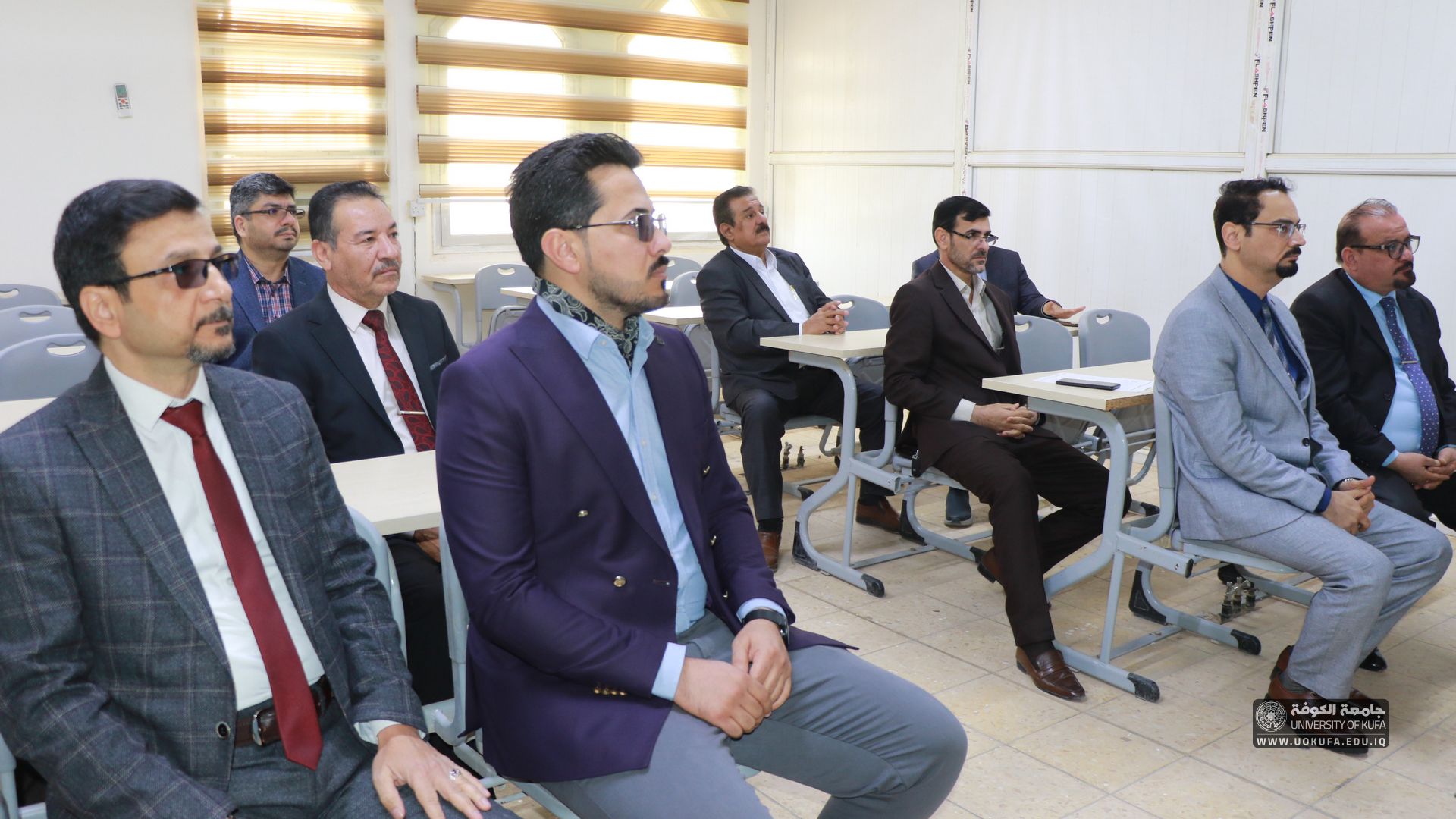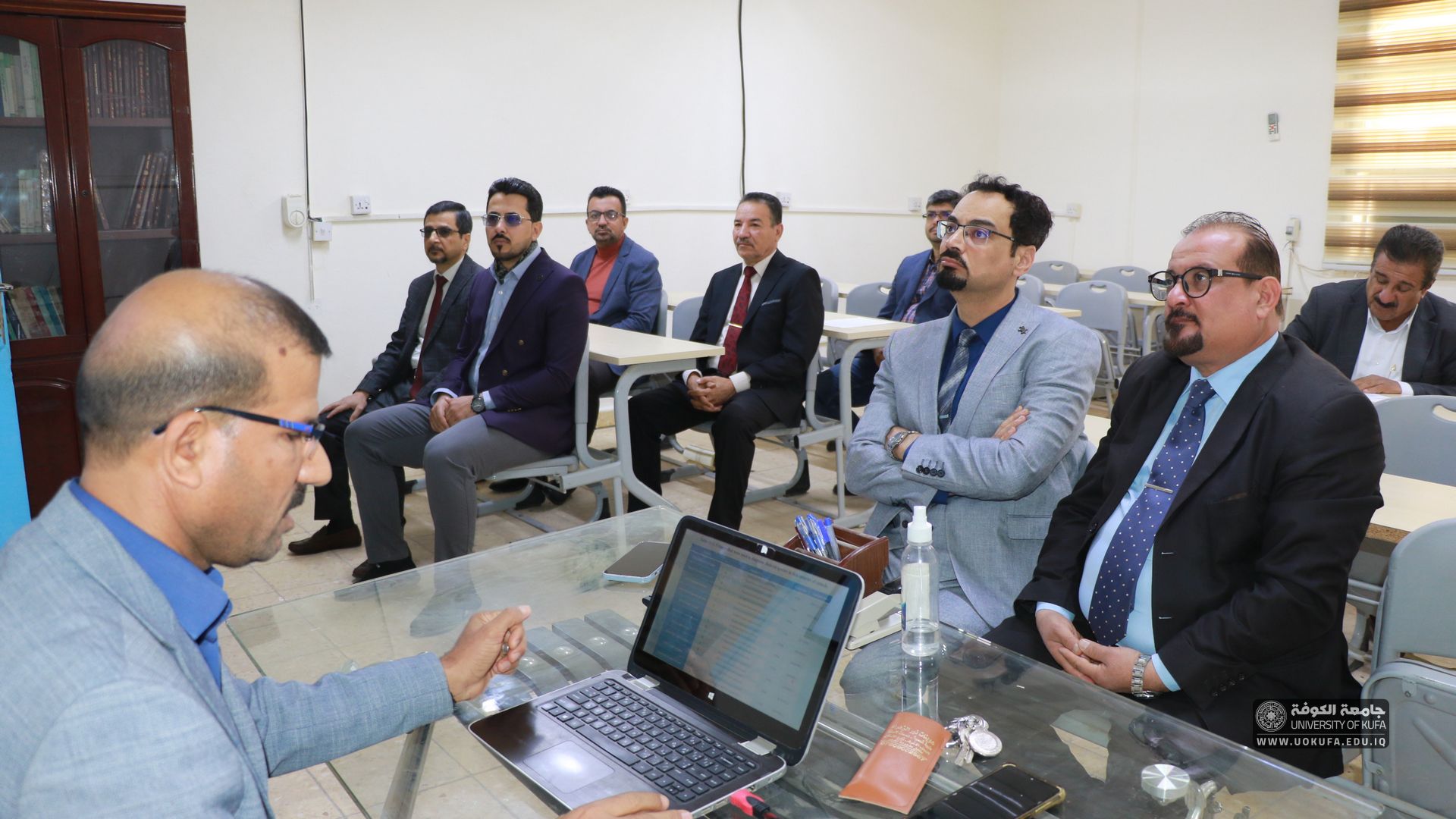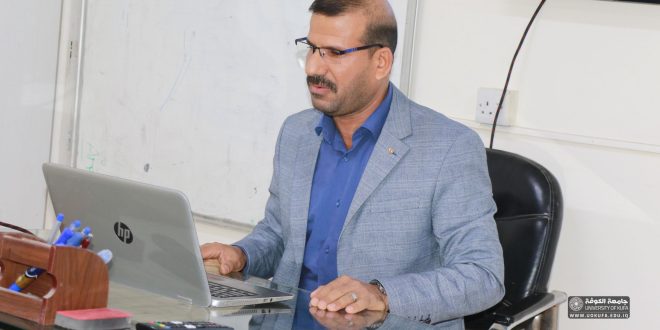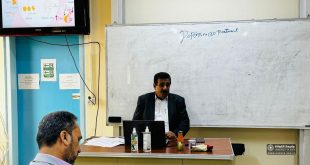اOn Tuesday, 12/12/2023, the Veterinary Microbiology department at the Faculty of Veterinary Medicine held a seminar entitled (Molecular detection and genetic analysis of Babesia species that infect the one-humped camel tick in Najaf Governorate).
Delivered by lecturer Dr. Maytham Askar Alwan at ten o’clock in the morning in the graduate studies hall. The seminar aimed to investigate the spread of Babesia species in ticks on one-humped camels slaughtered in the Najaf massacre and determine the spread of tick infection using microscopic and molecular diagnostic methods.
The study concluded that camel ticks are infected with Babesia twins and Babesia bovis, and the spread of Babesia is closely linked to the seasonal activity of the vector ticks, as five species of hard ticks that infect camels, which belong to the genus Hyaloma and Ribesicephalus, were recorded.
The study proved that Babesia twinis isolates from camel ticks are genetically identical to the Thai and Japanese global isolates, while bovine Babesia isolates are genetically identical to the Chinese global isolates.
Finally, the discussion came out with several recommendations, as follows:
1- Conduct a comprehensive epidemiological study of babesiosis and tick infections in camels in the Najaf desert to determine the extent of the disease’s spread.
2- Conduct further studies to detect common Babesia species that infect humans (breeders) and animals.
3- . Establishing regular programs to combat vector ticks using pesticides, especially during tick infestation seasons, thus combating blood parasites, and carrying out awareness-raising activities for farmers and breeders about the dangers of ticks as they are carriers of many diseases common to humans and animals.
4- The use of polymerase chain reaction techniques in detecting blood protozoa parasites in field animals and their vectors are very accurate, specific and sensitive methods.


 Faculty of Veterinary – University of Kufa Official Site – Faculty of Veterinary
Faculty of Veterinary – University of Kufa Official Site – Faculty of Veterinary

